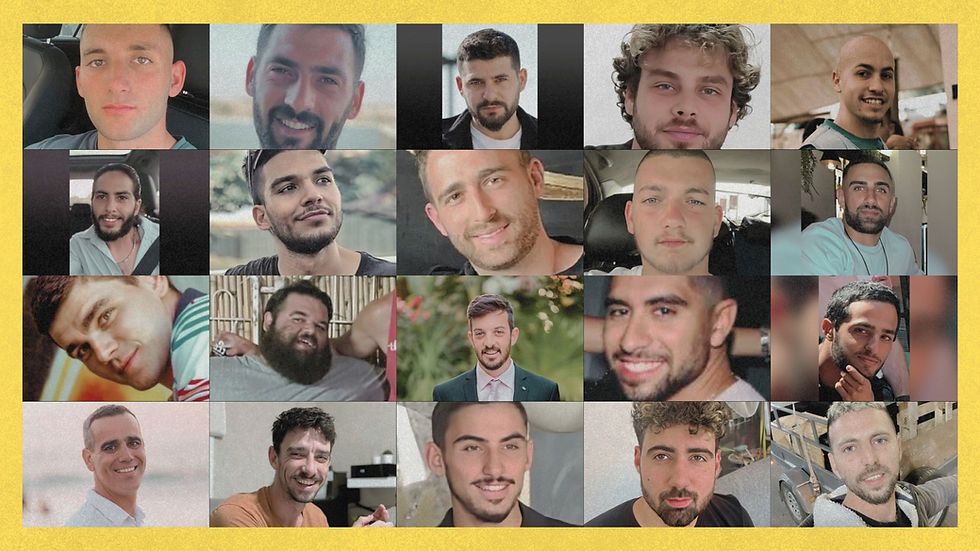Three Powerful Points on Purim
- Ron Cantor

- Mar 2, 2018
- 4 min read
This week in Israel, we celebrate the story of Esther. It is an all too familiar theme of a world leader seeking to carry out genocide against the Jewish people. I want to look at the three central characters and learn one thing from each of them.
Esther
When Esther heard through Mordechai that Haman was plotting to kill the Jews, she balked. She was not like Mordechai, who refused to bow down to Haman. She wasn’t naturally courageous. My friend Yakov Damkani is a Mordechai. He is a fearless Israeli evangelist, who has stood for Yeshua in the face of violent attacks. But Esther was not. Like most of us, if she was going to do this—risk her life—she was going to need help from above.
I think of those four policemen who did not charge into the school while 17 teenagers were killed. That is what you are trained to do. You put your life on the line for others. In Israel, it is second nature to run to the action, rather than run from it. On dozens of occasions, civilians have stopped terrorists. Last year, Jerusalem Mayor Nir Barkat, took down and knife wielding Palestinian with his bare hands.
I don’t judge the police officers in Florida. I don’t know what I would do in the same situation. But Esther had to overcome a similar fear. Probably shaking with fear, she approached the king. Her bravery saved thousands of lives.
Mordechai
We read in Romans 8:31, “If God is for us, who can be against us?” It is true and we can see that in the life of Mordechai. If God has determined blessing for your life, no outside element can stop it—not the devil, not Haman.
Yes, there are tests and challenges in life. They are not contrary to the blessing of God, but sent to help us mature. Joseph was not ready to save the world from famine as a teenager, when he boasted he would rule over his brothers. But after being sold as a slave, falsely accused of rape and then thrown into prison, he was ready.
The trials developed deep character in Joseph—so much so, that when he was reunited with his brothers he was able to say in essence, “This was God’s plan for me, not yours,” as he forgave them. Just because you are going through a trial doesn’t mean God has forgotten you.
Look how things ended up with Mordechai. Haman hated him. He wanted to kill him. One night the king could not sleep and so he decided to have someone read him the chronicles of his reign. He discovered that Mordechai had once saved his life from an assassination plot. The next day he asked Haman, what should be done for the man that the king wants to honor. Naturally Haman was sure the king wanted to honor him. So he says:
“For the man the king delights to honor, have them bring a royal robe the king has worn and a horse the king has ridden, one with a royal crest placed on its head. Then let the robe and horse be entrusted to one of the king’s most noble princes. Let them robe the man the king delights to honor, and lead him on the horse through the city streets, proclaiming before him, ‘This is what is done for the man the king delights to honor!’” (Esther 6:7-9)
The king was pleased with Haman’s idea and told Haman to do it for Mordechai. Hollywood could not have written a better script. In addition, Esther was given Haman’s estate and presented Mordechai with his signet ring that he took back from Haman. If God has determined blessing on your life, then you can expect it. He will overcome the impossible to bless His children.
Haman
Fueled by pride and jealousy Haman plotted against the Jewish people. When we seek to harm others, we clog the funnel of blessing. Like Joseph, we must forgive those who hurt us.
For if you forgive other people when they sin against you, your heavenly Father will also forgive you. But if you do not forgive others their sins, your Father will not forgive your sins. (Matt. 6:14-15)
And if we seek to harm others out of fear, jealousy, anger, pride, etc., we will bring curses on ourselves.
“Whoever digs a pit will fall into it; if someone rolls a stone, it will roll back on them.” (Prov. 26:27)
This biblical principle states that the very vehicle that you seek to use to harm others will run you down. It is written in Esther, “when the plot came to the king’s attention, he issued written orders that the evil scheme Haman had devised against the Jews should come back onto his own head.” (Esther 9:25)
The King was informed that “a pole reaching to a height of fifty cubits stands by Haman’s house. He had it set up for Mordecai, who spoke up to help the king.” The king said, “Impale him on it!” (Esther 7:9)
Conclusion
Let’s choose to be people of courage, walking in the blessing of God, forgiving all who sin against us.














Comments